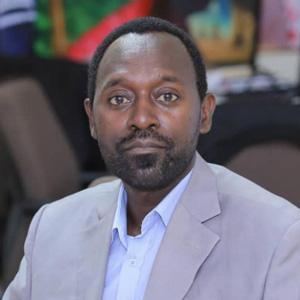By Magezi Kiriinjju
Every year, Uganda AIDS Commission mobilizes stakeholders countrywide to commemorate the PHILLY LUTAAYA day on 17th October. The day presents a forum to mobilize the entire population to reflect and evaluate the commitments to end HIV/AIDS in Uganda. The Philly Lutaaya Day contributes to the most needed opportunities to reach the communities with facts on HIV strategies, disseminate international and national achievements, share notable research findings and awareness of access to care and treatment, social support and HIV prevention. The event offers a forum to showcase national interventions and provide HIV and health services to the communities through exhibitions by AIDS support organizations and partners.
The fight against HIV/AIDS still has many challenges like prevention, lack of a cure and a vaccine, financing and sustainable response, stigma and discrimination. However, today I will concentrate on stigma and discrimination and their impact on the fight against AIDS in Uganda. Stigma is a damaging social phenomenon in which a group of individuals or an individual is labeled as socially undesirable and are or is devalued due to attributes, behaviors, or afflictions that are societally deemed as “deeply discrediting. This quote can best describe what stigma of HIV/AIDS looks like in society;
“The stigma of chronic pain is one of the most difficult aspects of living with chronic pain. If you have chronic pain, people can sometimes judge you for it. Specifically, they can sometimes disapprovingly judge you for how you are coping with it. If you rest or nap because of the pain, they think you rest or nap too much. If they catch you crying, they become impatient and think you cry too much. If you don’t work because of the pain, you face scrutiny over why you don’t. If you go to your healthcare provider, they ask, “Are you going to the doctor again?” Maybe, they think that you take too many medications. In any of these ways, they disapprove of how you are coping with pain. These disapproving judgments are the stigma of living with chronic pain.” Murray J. McAlister.
Therefore, for the case of people living with HIV (PLWH), stigma has negative effects on health in general through non-optimal medication adherence, lower visit frequency, higher depression, and overall lower quality of life. Stigma leads people living with HIV to self-belittling emotions and perceptions such as shame, self-blame, embarrassment, and low self-esteem. It also has other negative effects like loss of income and livelihood, loss of marriage and childbearing options, poor care within the health sector, withdrawal of care-giving in the home, loss of hope and feelings of worthlessness and reputation.
Stigma leads to reluctance to get tested, disclosure of one’s HIV status and taking of antiretroviral drugs. Late diagnosis makes treatment ineffective, increases chances of spreading the disease to others and increases incidences of AIDS-related death.
On the hand, according to Wikipedia, discrimination against people with HIV/AIDS or serophobia is the prejudice, fear, and rejection of people afflicted with HIV/AIDS. Discrimination is known to have caused violence against AIDS victims, denial of medication, violation of confidentiality by medical personnel and isolation. Much like stigma, consequences are dire for the victims but also for the society as a whole. Discrimination leads to low turn-out for HIV counseling and testing, identity crises, isolation, loneliness, low self-worth, and a lack of interest in containing the disease. Additionally, violent acts against HIV infected individuals or people who are perceived to be infected with HIV can severely hinder the advancement of treatment.
Therefore, a toxic combination of negative consequences of stigmatization and discrimination against people living with HIV/AIDS pushes them to margins of society where poverty and fear leads to difficulties in accessing HIV services. These people are increasingly marginalized, not only from society, but from the services they need to protect themselves from HIV. The result is that victims quietly spread the disease further to unsuspecting members of society hence undermining the ability of individuals, families and societies to protect themselves, they hinder prevention measures like vaccine trials and eventually lead to premature deaths.
The reason Uganda cerebrates Philly Bongoley Lutaaya day through a memorial lecture is to highlight his contributes to not only fighting HIV/AIDS but the debilitating effect of stigma and discrimination against people living with AIDS. When he came out and announced to the public his HIV status, he encouraged many Ugandans to do the same. Today, Ugandans acknowledged Lutaaya as ‘a father of Positive Living’ a notion that drives the international principle of greater and meaningful involvement of people living with HIV/AIDS which eventually promotes prevention with a positive strategy.














































Discussion about this post